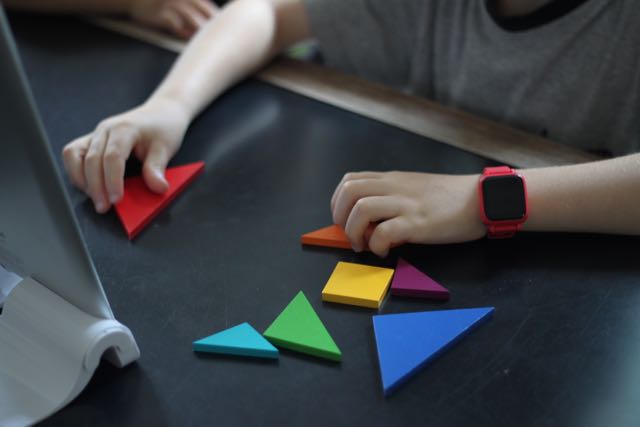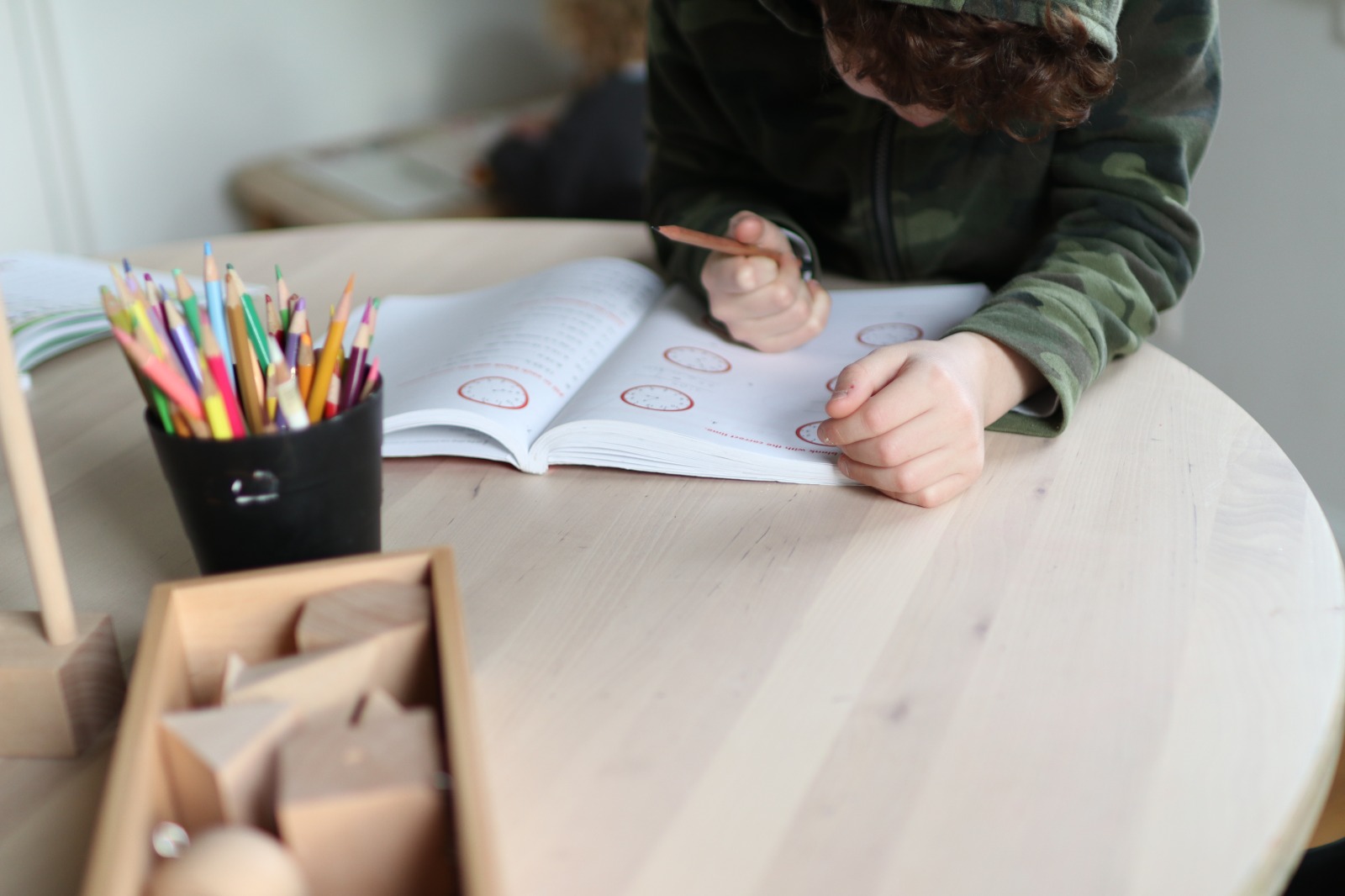Can you help your kids Love Math (even if you don’t)?
It will strike anyone who knows me as ironic that I of all people am posting about a love of maths. Simply because, well, I don’t. Love math, that is.
I grew up believing I was rubbish at numbers and couldn’t quite get it. I stumbled through my high school diploma level maths and had to leave my major in physics because my math wasn’t up to scratch.
Maybe it’s because of this life-long narrative that I’m determined to change that, both in myself, and my kids. Maybe it’s because I’m a girl, maybe it’s because I moved countries when I was 8 and missed out on 3 years of mathematics due to it being in a language that was foreign to me – but math has always given me the sweats.
I’m determined not to transfer that “math story” to my own children. I want to empower them with the knowledge numbers are their friends. That they can solve logical problems, and use math in all it’s forms to serve them in pursuit of their goals and in their understanding of the universe.
For me, math was always a punishment. A scary thing. Something I was rewarded for “enduring” (teaching me that it held no intrinsic reward to stretch my mind and master these useful concepts).
It was also damningly irrelevant to my life. Today, as someone who runs a home and a business a sense of competency around math is critical. I’ve earned some of my “math security” as an adult who’s made a conscious effort to change my numbers narrative – but I’d like to set my kids up for success from the get go.
I have some ideas on how to cultivate that love of math which I’m sharing today. Do you have any ideas? Please share them with our community of Parenting Junkies in the comments below!
- Address your own insecurities and fears
First up, go through the same process as I did. Ask yourself what negative beliefs are you holding about math? That it’s hard? That it’s boring? That you’re not good at it? That it comes “naturally” to some people and not to others? That it’s something to “get through”?If you’re holding subconscious (or conscious!) thoughts about math (or any other discipline) you will necessarily pass those on to your children.For example, you’ll say “Do your math homework and then we’ll go have fun” or some similar “harmless” message that says loud and clear: Math is NOT fun.Figure out your story and replace it with an empowering one:
Math is easy. Math is fascinating. Math is useful.
- Never force it
As with any learning, acquiring math skills is a natural and easy process when you do it gradually, consistently and in alignment with your child. Go at their pace and follow their interests – there is a plethora of “low hanging fruit” when it comes to math learning opportunities. No need to bust out the text books just yet (or ever). - Make it tangible and real
Children are MASTERS at learning the skills that serve them. Theoretical concepts and abstract ideas? Not so much. But this is GOOD news when it comes to math-loving. We’ve been conditioned to think of math as numbers on a paper – but really, real life math is rich and robust: Cooking, saving for and buying things (and getting change – see more about allowance here), observing how fast we’re going in the car and how long it takes to get there.Being measured at the doctor’s office, building with lego, detecting patterns and knitting or sewing. All these offer ample opportunity to develop a real sense for numbers – a far cry from the rote memorization of math facts that we often coerce children into.If you don’t know how to do some basic math problems that your child is already getting into – learn alongside them! Open up Khan Academy (it’s free!) and start learning again, it’s a wonderful opportunity to fix your own math fears and to model life long learning for your child.
- Play games
Inherent in games are mathematical concepts such as following a sequence of rules, turn taking, and getting the “right” answer to a problem (the rook can only move in a straight line, the knight makes an L shape).Go for the classics – checkers, tic tac toe, building with blocks, chess, twister, cards… all these are a fun way to enjoy math and build our ability to follow instructions and work within a predetermined framework. (For some of my favorites see STEM toys). - Change it up!
Use a variety of materials – sticks, stones, blocks, money, animal figures, an abacus… The key is to remember that math is ALIVE and to keep it tangible, tactile and enticing. Don’t give into the (sad) thinking that math means pencil on paper (although you can do that too! I like Jump math).
We use ipad games, Sumblox and just talking about number concepts.
Extra tips:
- Don’t praise or reward maths.
- Don’t label your child as “good” or “bad” at math.
- Do keep it light, positive, manageable and short!
- Do take the long haul view – gradually, slowly and naturally.Want tips for teaching your kid to love to read?
Plus here are some STEM items we love at home.
Interested in finding educational approach that maximizes joy for your family?
LEAVE A COMMENT!
Give our community the benefit of your math story, ideas and games that you recommend by leaving a comment below! Or just let me know if you like this post and want more like it. ↓ ↓ ↓











I grew up hating math. It made me feel stupid. And since Math is at the top of academic hierarchy, I thought I WAS stupid.
This video makes me get excited about the many ways we learn math and I feel so confident just giving my young son opportunities to explore and learn math on his own, without even realizing he is! Keeping my own fears in check is so important. Thank you!